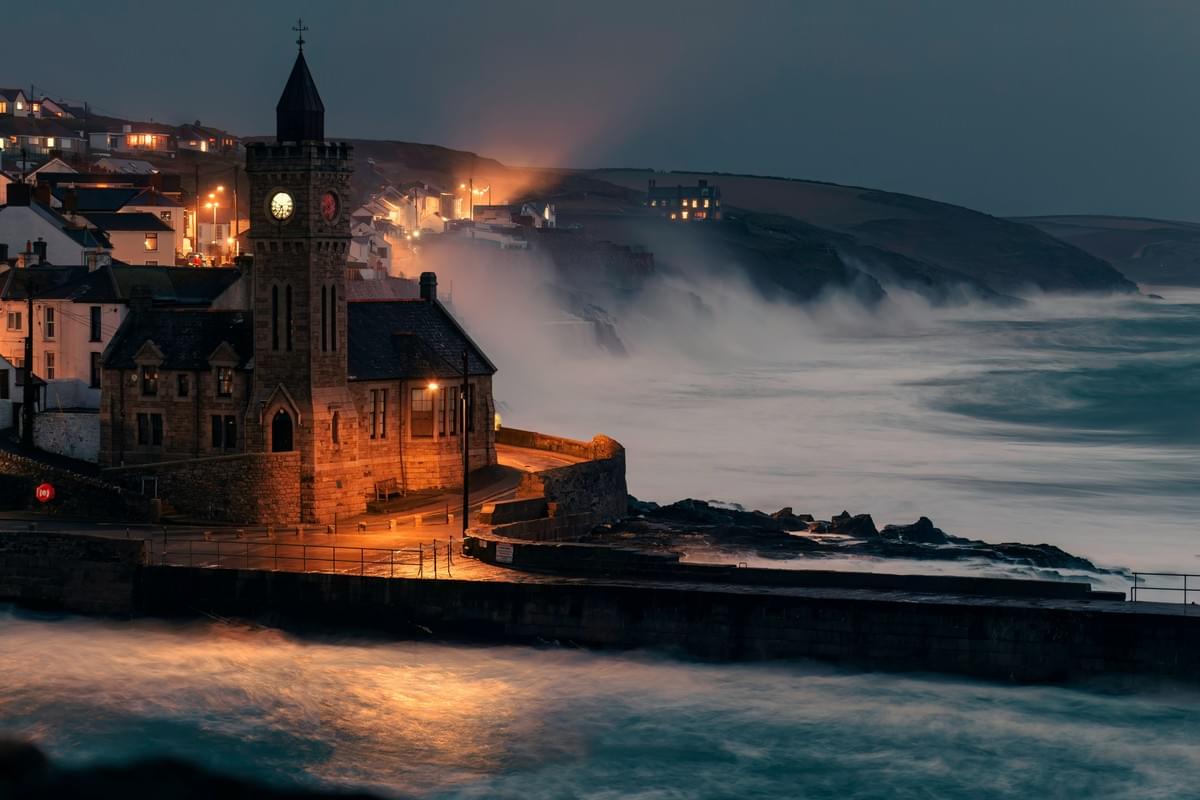Business Lessons from Storm Floris: How to Weather Scotland’s Extreme Summer Storms
Business Lessons from Storm Floris: How to Weather Scotland’s Extreme Summer Storms
By Wendy Sneddon
Storm Floris swept across Scotland on Monday 4 August 2025, unleashing wind gusts of up to 134 mph at Cairn Gorm and widespread gales between 90 and 100 mph. This unseasonal summer tempest, the strongest August storm in a decade, led to the unprecedented cancellation of cherished events such as the Royal Edinburgh Military Tattoo, as well as the closure of Edinburgh Castle, Edinburgh Zoo, and other major attractions.
More than 22,000 homes and businesses in the Highlands and northeast were left without power. Rail services were cut or slowed, ferry crossings cancelled, and flights grounded as authorities issued amber “danger-to-life” warnings. The scale of the disruption was a reminder that even in summer, Scotland’s weather can deliver the kind of severe impact more often associated with winter.

How Businesses Were Affected
Electricity and Utilities
Scottish & Southern Electricity Networks (SSEN) activated a large-scale response, mobilising extra engineers, postponing planned maintenance, and contacting vulnerable customers in advance. Even so, outages affected tens of thousands of premises, halting production lines, shutting down tills, and interrupting communications.
Transport Disruptions
Scotrail enforced 50 mph speed limits on many routes, with some services suspended entirely. Ferries were cancelled, flights deferred or grounded, and key roads and bridges closed. Staff were unable to get to work, goods were delayed, and delivery schedules were thrown into chaos.
Event and Tourism Losses
The cancellation of flagship events and the closure of tourist attractions came at the height of the Edinburgh festivals. The knock-on effect on hospitality, retail, and tourism businesses was immediate, with ticket sales lost, bookings cancelled, and footfall in city centres reduced to a trickle.
Property and Infrastructure Damage
Flying debris, falling trees, and dislodged signage caused property damage across the country. Outdoor displays, tents, and street furniture became hazards, and in many cases were destroyed, adding to recovery costs for businesses.
Reputation, Compliance and Financial Strain
Missed deadlines, stalled shipments, and disrupted service delivery created reputational risks. Businesses also faced potential breaches of contracts and a surge in insurance claims, which could lead to higher premiums in the future.
Preparing for the Next Storm
Extreme weather events like Storm Floris are becoming more frequent and less predictable. For business owners, preparation is no longer an optional extra, it’s a necessity.
Develop and Test a Business Continuity Plan
Many Scottish businesses still do not include climate-related threats in their planning, and even fewer rehearse their responses. Continuity plans should cover power outages, transport failures, and property damage, and should be tested regularly.
Secure Outdoor Assets
Any loose items such as signage, fencing, planters, and display stands should be anchored or brought indoors when high winds are forecast. Trees and overhead hazards should be maintained to reduce the risk of falling debris.
Invest in Backup Power and IT Systems
Generators, uninterruptible power supplies (UPS), cloud-based storage, and mobile data solutions can keep operations running when the mains power goes down. Staff should be trained in how to work under these conditions.
Diversify Transport and Supply Chains
Where possible, businesses should have alternative suppliers and delivery routes. Holding buffer stock and enabling remote working can help keep operations going when roads, rail, or ferries are disrupted.
Stay Informed
Sign up for alerts from power companies, transport operators, and weather services. Having timely information allows businesses to take pre-emptive action and communicate effectively with staff and customers.
Register for Priority Services
Businesses that depend heavily on continuous electricity, such as those with refrigeration or critical IT infrastructure, should consider joining their electricity supplier’s Priority Services Register to ensure faster restoration in an outage.
Plan Communications in Advance
Prepare a crisis communication strategy that outlines how you will inform staff, customers, and suppliers of any changes to service. Having ready-made templates for emails, text alerts, and social media posts will save valuable time during an emergency.
Use Climate Resilience as a Strategic Advantage
Regularly assessing risks to people, premises, products, and processes can reveal opportunities for innovation. Businesses that can maintain service during disruption will stand out from competitors and earn customer loyalty.
A Wake-Up Call
Storm Floris was a powerful reminder that Scottish businesses cannot rely on predictable seasons. A summer storm can be just as damaging as a winter blizzard, and the financial and operational impact can be severe.
The lesson is clear: proactive planning, flexible operations, and investment in resilience are now core parts of running a business in Scotland. Those who take the time to prepare will not only survive the next storm, they may well find themselves stronger for it.
